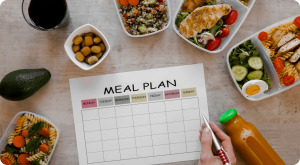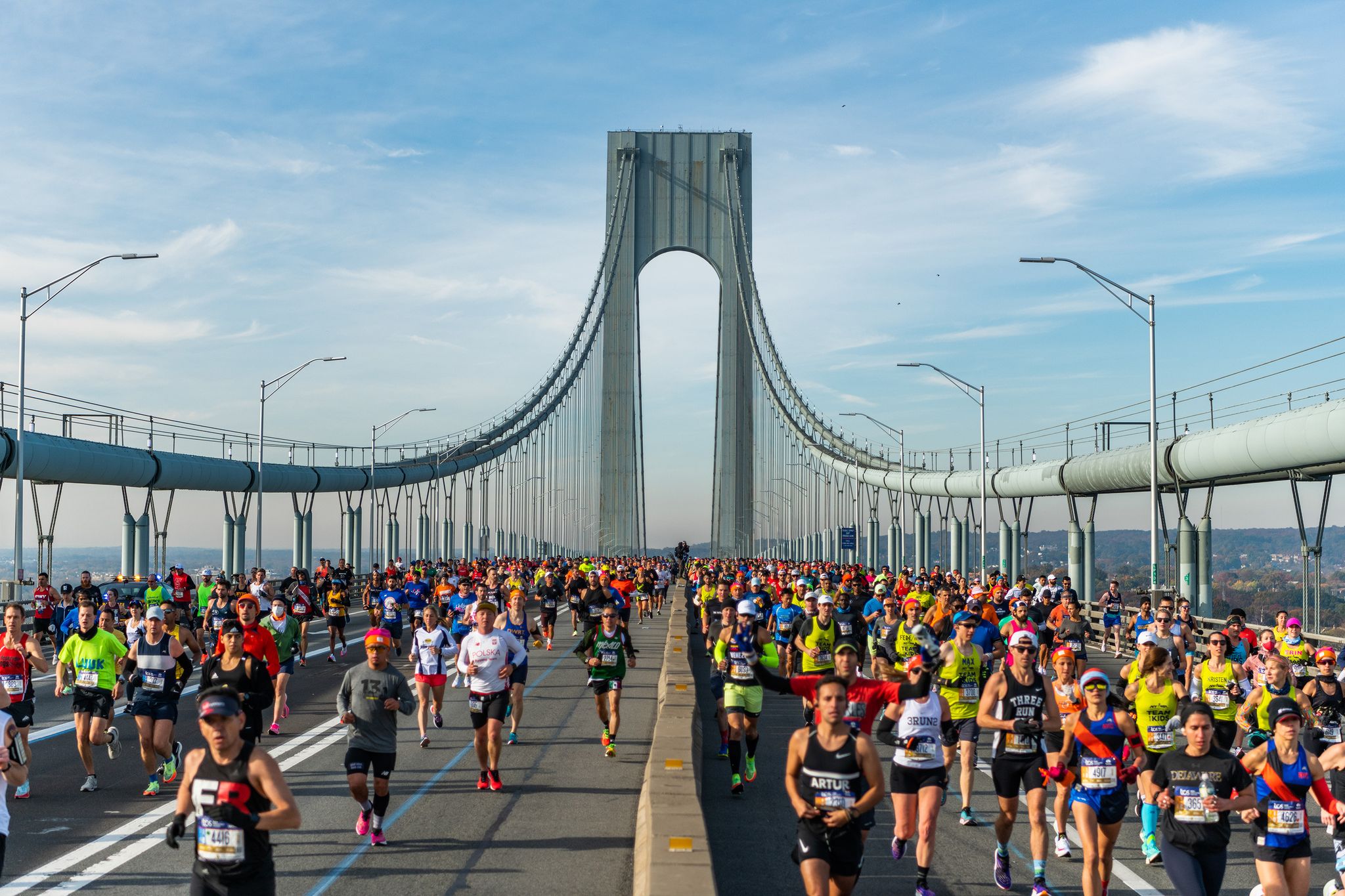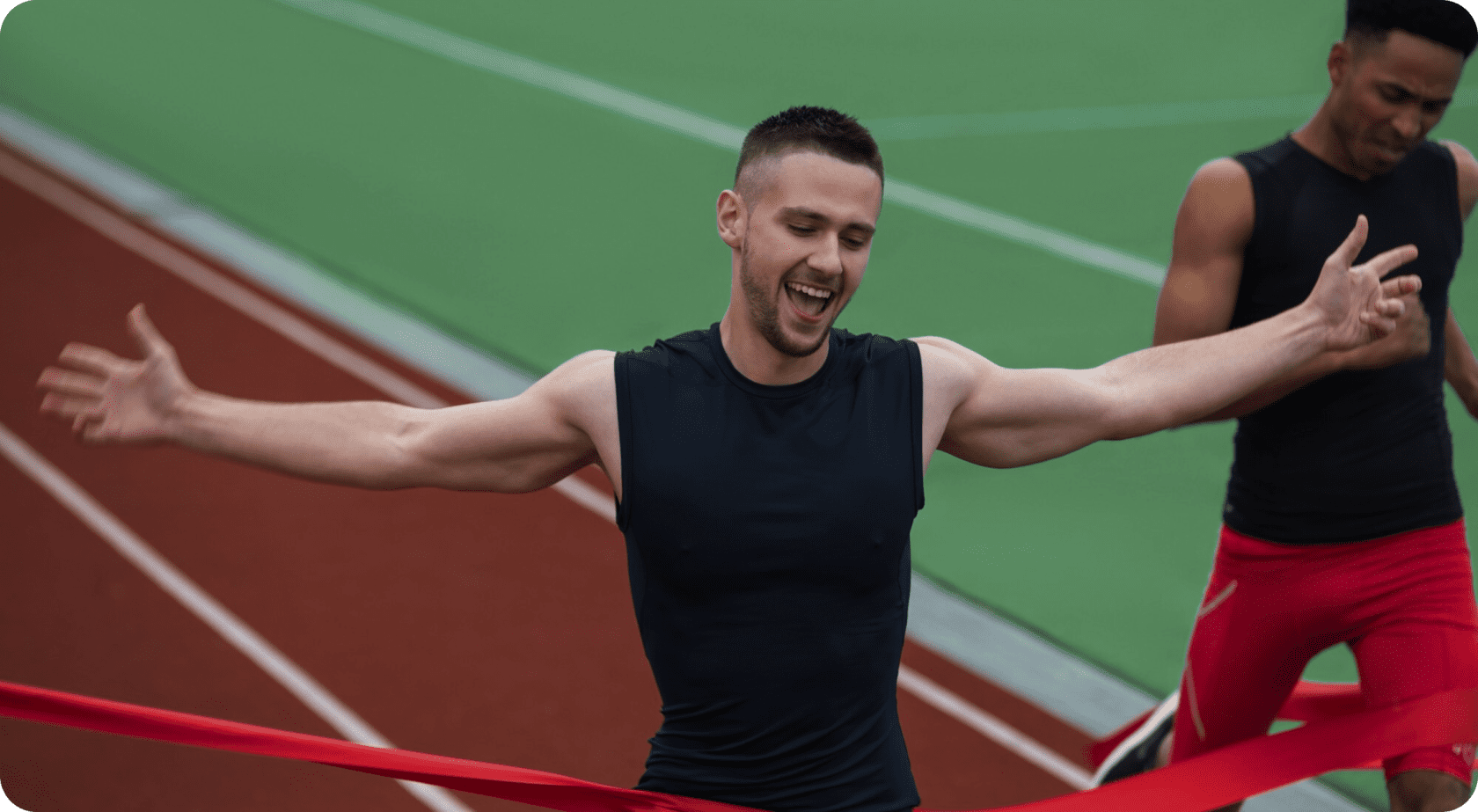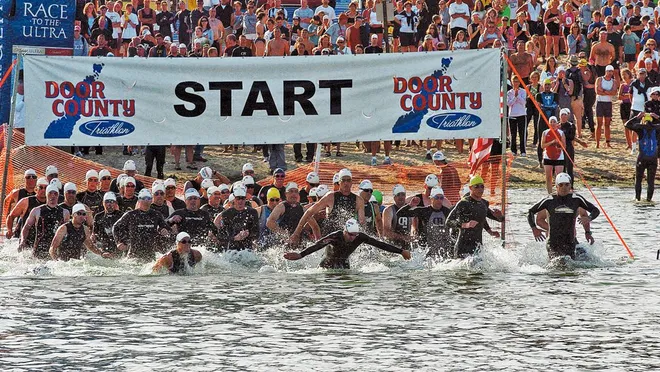Struggling to nail down your race week nutrition? You’re not alone.
In this guide, we’ll break it down simply so you can focus on what matters: crushing your endurance goals. From pre-race carb-loading to post-race recovery fuel, we’ve got you covered.
Think hearty oats for breakfast, balanced wraps for lunch, and nutrient-packed pasta for dinner.
Let’s fuel your performance and leave the guesswork behind!
Why is Nutrition Important for Triathletes?
Nutrition is key for triathletes because it’s like the fuel for a car.
Without the right fuel, your body won’t perform at its best on the race day.
Here’s why nutrition matters:
Triathlons are super demanding on your body.
Good nutrition gives you the energy you need to swim, bike, and run long distances without feeling exhausted.
During training and racing, your muscles get tired and sometimes damaged.
Eating the right foods helps repair and rebuild them so that you can bounce back quicker for your next session.
Nutritious food keeps your immune system strong.
Triathletes push their bodies hard, making them more prone to getting sick. Eating well helps fend off those nasty bugs.
Your brain needs the right nutrients to stay sharp.
Good nutrition helps you stay focused during training and races, so you can make split-second decisions and keep going strong.
Now that we’ve understood the role of nutrition in race day preparations, it is time to move on to the meal plan.

Race Week Meal Plan Sample
These are simple yet nutritious foods that will replenish your glycogen stores, helping you perform your best.
Day 1: Hydration and Carbohydrate Loading
Breakfast: Whole grains toast with almond butter, sliced banana, and honey.
Snack: Greek yogurt with mixed berries and a drizzle of honey.
Lunch: Quinoa salad with mixed veggies (bell peppers, cucumbers, and cherry tomatoes), served with your choice of grilled chicken or tofu.
Snack: Whole grain crackers with hummus and carrot sticks.
Dinner: Grilled salmon or tofu with sweet potato and steamed broccoli. Drink water or electrolyte-rich beverages.
Day 2: Protein and Carb Balance
Breakfast: Scrambled eggs with spinach, whole grain toast, and a side of berries.
Snack: Protein smoothie made with almond milk, banana, spinach, and protein powder.
Lunch: A turkey or veggie wrap with a whole-grain tortilla, lettuce, tomato, and avocado. Serve with a side salad.
Snack:
Apple slices with almond butter.
Dinner: Whole wheat pasta with marinara sauce, grilled chicken or tofu, and steamed vegetables. Drink water or electrolyte-rich beverages.

Day 3: Focus on Lean Proteins and Healthy High Fat Foods
Breakfast: Overnight oats made with almond milk, chia seeds, sliced almonds, and mixed berries. Hydrate with water.
Snack: Cottage cheese with pineapple chunks.
Lunch: Quinoa and black bean salad with avocado, corn, tomatoes, and lime vinaigrette.
Snack:
Trail mix with nuts, seeds, and dried fruit.
Dinner: Grilled chicken or fish with roasted vegetables (bell peppers, zucchini, onions) and quinoa. Drink water or electrolyte-rich beverages.
Day 4: Carb-Rich Meals
Breakfast: Whole grain pancakes topped with Greek yogurt and mixed berries.
Snack:
Rice cakes with almond butter and sliced banana.
Lunch: Brown rice stir-fry with tofu or shrimp, mixed vegetables, and teriyaki sauce.
Snack: Homemade energy balls made with oats, peanut butter, honey, and dark chocolate chips.
Dinner: Baked sweet potato with black beans, avocado, salsa, and Greek yogurt. D
rink water or electrolyte-rich beverages.
Day 5: Tapering and Hydration
Breakfast: Smoothie bowl with spinach, banana, berries, almond milk, and granola.
Snack: Whole grain toast with avocado slices and cherry tomatoes.
Lunch: Quinoa salad with grilled chicken or tofu, mixed greens, cucumber, and balsamic vinaigrette.
Snack: Greek yogurt with honey and mixed berries.
Dinner: Grilled salmon or tempeh with roasted sweet potatoes and asparagus. Drink water or electrolyte-rich beverages.

Day 6: Final Preparations and Relaxation
Breakfast: Scrambled eggs with spinach, whole grain toast, and sliced avocado.
Snack: Rice cakes with almond butter and sliced banana.
Lunch: Whole wheat wrap with turkey or hummus, lettuce, tomato, and avocado.
Snack: Apple slices with peanut butter.
Dinner: Whole grain pasta with marinara sauce, grilled chicken or tofu, and steamed broccoli. Drink water or electrolyte-rich beverages.
Day 7: Race Day!
Race morning: Oatmeal with sliced banana, almond butter, and a sprinkle of cinnamon.
Hydrate with water or a sports drink.
Snack: Energy bar or banana with almond butter. Drink water.
During the Race: Consume energy gels, sports drinks, or other race fuel as needed. Hydrate with water or a sports drink.
Post-Race: Refuel with a balanced meal containing carbohydrates, protein, and healthy fats. Hy
drate with water or electrolyte-rich beverages.
Remember, eating well isn’t just about what you
eat before and during races. It’s a daily thing that keeps your body in top shape for all your triathlon adventures.

Wrapping up: What to Eat Before a Triathlon?
Before a triathlon, it’s essential to eat foods that provide sustained energy, aid in muscle recovery, and are easy on your stomach.
It is important to eat a balanced diet that includes complex carbohydrates, lean proteins, healthy fats, and a variety of fruits and vegetables.
Start with carbohydrates like whole grains, white rice, fruits, or pasta. Carbs are your body’s main source of fuel during exercise, giving you the energy you need to keep going strong.
Include some protein too, such as eggs, yogurt, or lean meats. Protein helps repair and rebuild your muscles, which is crucial for recovery after your race.
Stay hydrated throughout the day before your race. Hydration is key for optimal performance and helps prevent dehydration during the event.
Choose foods that are easy to digest and won’t cause any discomfort or gastrointestinal issues during your race. Avoid unfamiliar foods and stick to options that you’ve tried during training to avoid any surprises on the big race day.
Timing is also important. Aim to have your last substantial meal about 2-3 hours before the race starts. This gives your body enough time to digest and ensures that you have enough energy for the event.
Frequently Asked Questions
During race week, can I still eat my favorite foods, or should I stick to the meal plan?
Yes, you can have some of your favorite foods in moderation during race week, along with healthy meals. Just watch your portions and pick foods that won’t upset your stomach or energy levels.
Should I focus on consuming more carbohydrates during race week to fuel my training and performance?
Yes, it’s important to include plenty of carbohydrate-rich foods like grains, fruits, and vegetables in your meals during race week. Carbs help fuel your training and boost your energy for the marathon.
How can I ensure I’m properly hydrated during race week, especially as I increase my training intensity?
Drink water regularly throughout the day and consider using sports drinks during intense workouts to replenish fluids and electrolytes. Aim for pale yellow urine as a sign of proper hydration, and include hydrating foods like fruits and veggies in your meals.






